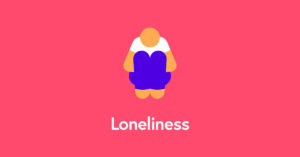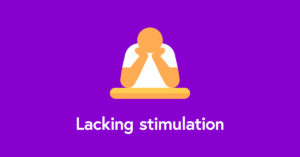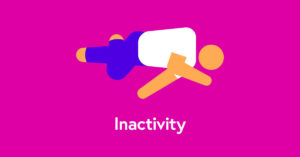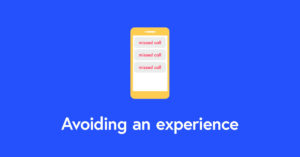Why we get bored and what to do about it
Bored of being bored? Find out what boredom actually is, why it happens, and what you can do to channel it into new projects.

Most of us will have experienced boredom at some point in our lives. Usually, it’s explained away as a lack of imagination, motivation, or organisation.
But the causes of boredom go far beyond this and, when properly channelled, boredom can be a powerful tool to motivate ourselves to achieve our goals.
We’ve taken a deep dive into why we get bored and why it’s not always a bad thing, and put together some ideas on how to make boredom work for you.
What is boredom and why is it important?
According to the Oxford English Dictionary (OED), the first usage of what we now understand as boredom dates back to 1853, and Charles Dickens’ novel Bleak House. However, this is hotly disputed with various sources citing the existence of the word many years before 1853.
We now understand being ‘bored, as defined by Lexico, as:
“feeling weary and impatient because one is unoccupied or lacks interest in one’s current activity”.
But this definition somewhat underplays the importance of boredom.
If not properly addressed, research has shown that chronic boredom can have serious consequences, ranging from depression and feeling alone to problems with your physical health.
But, it’s not all bad. As human beings, most of us don’t enjoy being unoccupied. We’ll do almost anything to avoid boredom, and it’s this insatiable motivation that is seen as a major driver in our evolution.
Our natural curiosity, together with a desire for purpose and occupation has led us to discover new tools, develop different skills, and create new technologies.
This isn’t the only benefit of boredom either.
In our day to day lives, allowing ourselves to be bored and not immediately searching for a solution is linked to increased mindfulness and improved creativity, and can motivate us to reassess things like career goals and priorities.
In fact, if you want to take thing a step further, there’s even an annual Boring Conference where you can truly embrace the beauty of boredom.
Why do we get bored?
Boredom can be caused by a number of factors, but the most common is being stuck in a repetitive or monotonous experience.
We can notice this almost anywhere, from tedious tasks at work and studying right through to waiting in line at the supermarket. Our brains don’t respond well to experiences that are too predictable, and this lack of stimulation can trigger a negative reaction.
As civilisation has developed, we’ve been presented with more and more opportunities to be bored. Our ancestors were largely focused on survival, and even as recently as a few hundred years ago, essential tasks that we now take for granted would have taken hours. Our minds now have to work harder to occupy that time.
Attention span is also closely linked to boredom. If we’re not giving our attention to what we’re doing, then we’re much more likely to get bored by it.
This is a particular challenge for those with attention deficit issues, and these groups tend to have a higher tendency towards boredom.
Of course, we don’t all experience boredom in the same way. Some of us have a greater need for external stimulation and excitement than others and therefore are more inclined to suffer from boredom than our introverted counterparts.
What to do when you’re bored
As with any problem, understanding it is the first step to overcoming it. As Psychology Today outlines, it’s important to actually understand what’s causing our feelings of boredom. Temporarily distractions – like social media or watching television – are common, but they won’t help us overcome feelings of boredom.
Some common cause are:

We’re social creatures by nature and feeling bored when you’re alone is common.

Maybe you’ve got stuck in a rut and need a new experience to stimulate your mind. See the next section for some ideas on things to do when you’re bored.

It might seem like a lot of effort but even just a small amount of physical activity is incredibly beneficial for your brain.

You might have disconnected to avoid engaging with a particular topic. Try talking about it with someone you trust.
Boredom-busting courses
If you’re looking to beat boredom, keeping your mind active and engaged in fun things to do is a great place to start. We’ve put together a selection of courses from top universities and fascinating cultural institutions to do just that.
Our courses also encourage you to discuss each step with fellow learners from across the globe – meaning they’re a great way to meet with, chat to, and learn from new people.
You can discover boredom-busting courses in everything from career development to taking the first steps on that passion project you’ve been thinking about starting.
We’ve compiled a short selection of our favourites below, but you can find the full collection of courses here.
Begin Programming: Build Your First Mobile Game from the University of Reading
If you’re feeling like you need a new challenge to beat your boredom and you’ve an interest in computers or programming then this course could be for you.
You’ll get to grips with the basics of computer programming and learn how to build your own mobile game in just five weeks.
An Introduction to Screenwriting from the University of East Anglia.
Screenplays are the building blocks for all of our favourite films. A great film needs a great script, after all. Maybe you’ve always had an idea for a screenplay but haven’t had the confidence to put it down on paper? Or maybe it’s just something you’d like to know more about?
This online course explores the key concepts behind a professional screenplay and is available to anyone with an interest in scriptwriting.
How To Write Your First Song from the University of Sheffield.
Is it time to unlock your inner Sinatra? This course will introduce you to the tools and techniques you need to write that first hit.
You’ll also hear from established musicians and songwriters who will share their tips on how to write a great song.
Essential Skills for Career Development from the University of Leeds and the Institute for Coding
Upskilling can be a productive use of your time if you’re feeling bored. This course will help you to refocus your career goals and discover what skills you’ll need to achieve them.
Covering everything from improving your job applications and interview techniques to building your professional networks, it’s a great way to channel your boredom into something helpful for your future.




